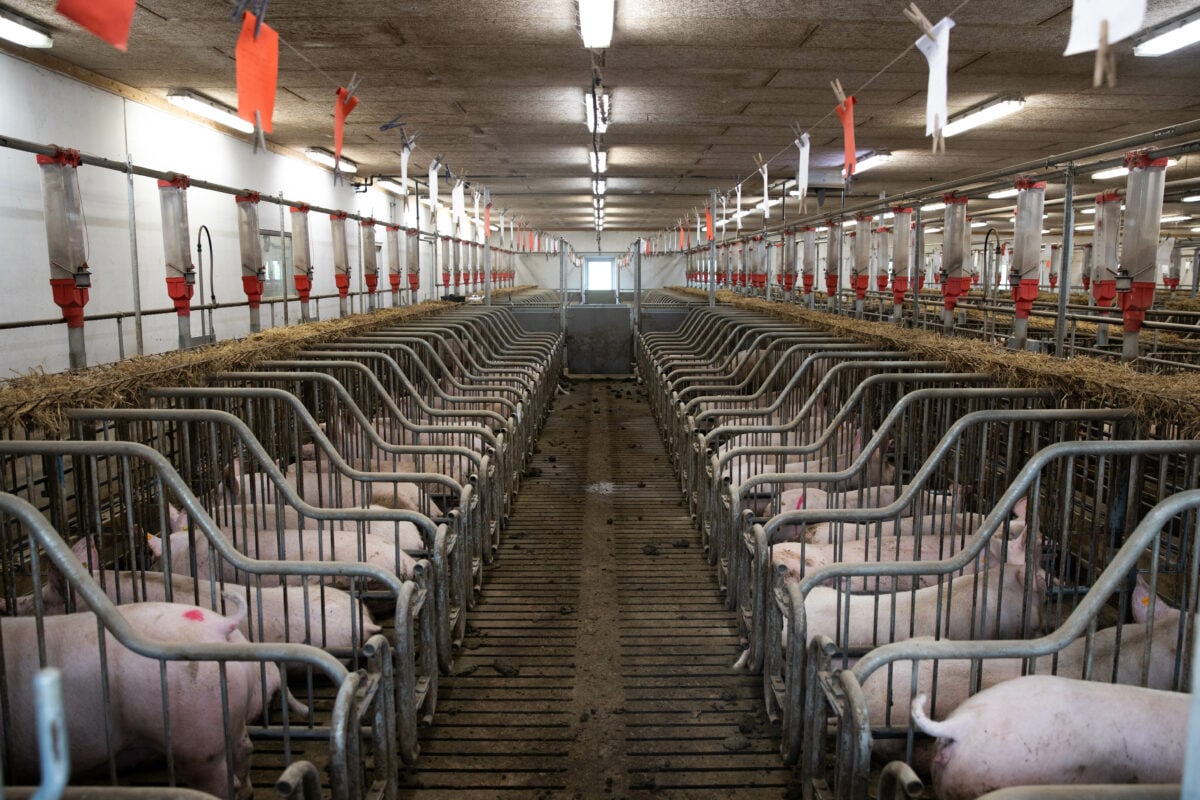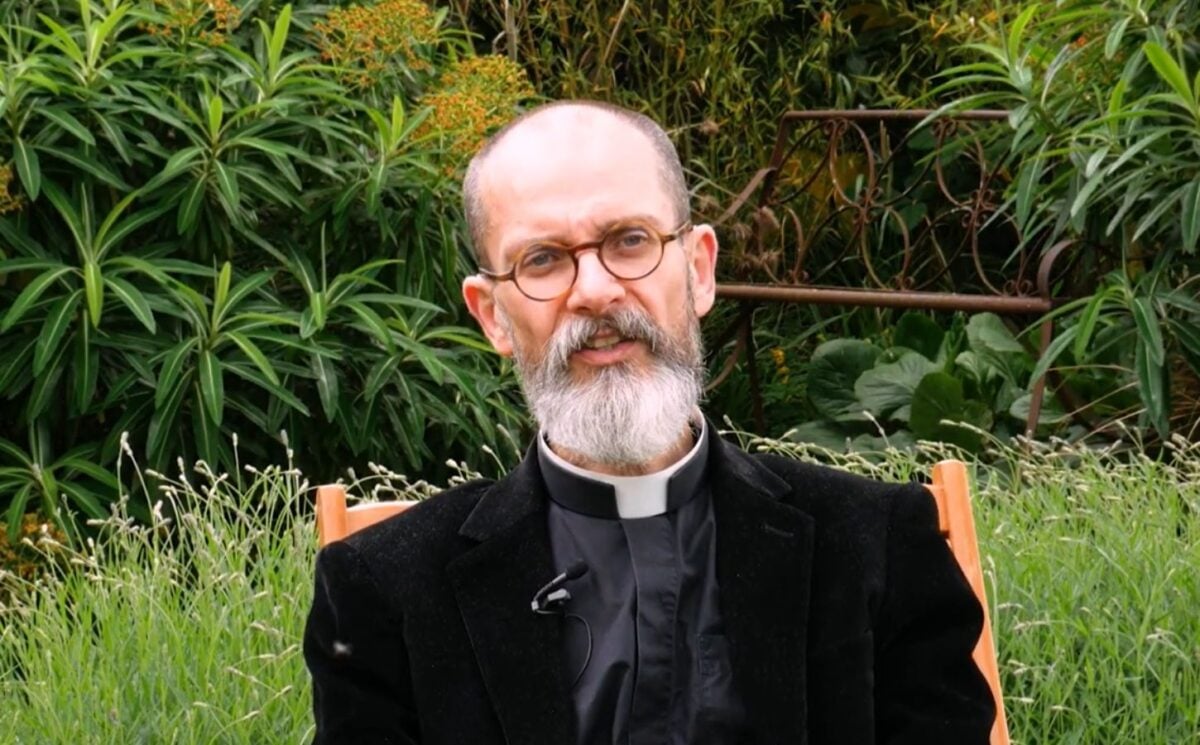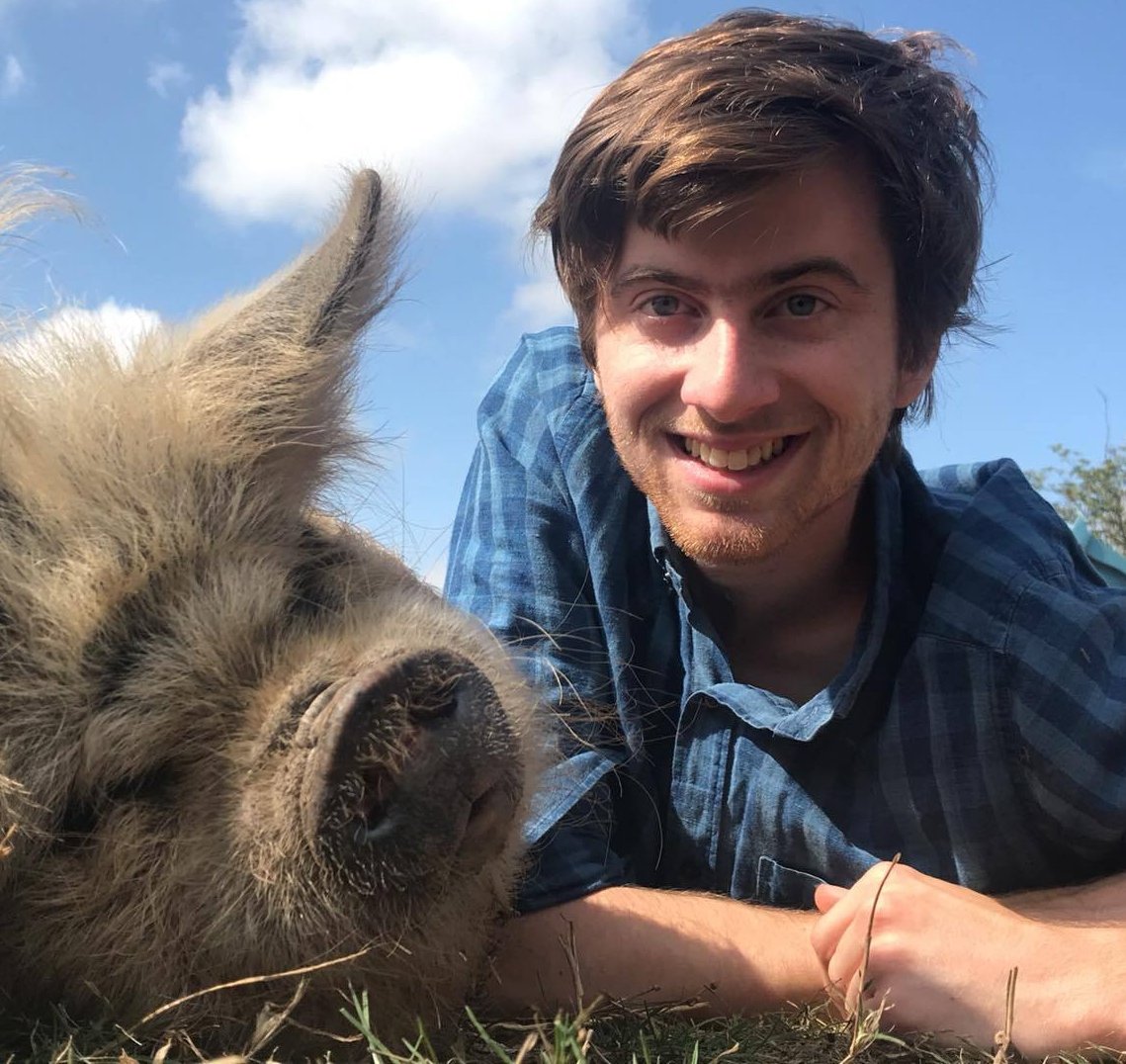A new series of interviews asks vegan vicars to share their insights into the relationship between Christianity and animals. The six-part series poses questions like “How does animal agriculture affect the most vulnerable?” and “Why should Christians challenge factory farming?”.
Daryl Booth, founder of Sarx, the Christian animal charity behind the videos, told Plant Based News (PBN) that “connecting mainstream Christian culture and animals can sometimes feel like fitting a square peg in a round hole.” The “Vegan Vicars” series aims to address that disconnect and open Christian eyes to the foundations of veganism already in scripture.
Through the interviews, the series explores humanity’s attitude to animals. The vegan vicars discuss passages from the Bible that have helped them on their journey to veganism. Animals are created by God and are therefore due “reverence and respect,” says The Revd Terry Martin. “I think God would weep if He were to go to a factory farm.”
“Whilst the vast majority of Christians love animals and have a passionate concern for their wellbeing, animals are rarely thought of as a faith issue to be addressed in our churches,” Booth told PBN. “This unique video series aims to bridge this gap between faith and animals. The vegan vicars we interviewed from across the UK show how a growing number of Christian leaders have strong faith-based reasons for embracing veganism.”
“A creature cannot praise God from your plate”
Compassion is a recurring theme that the vicars bring up. The word’s Latin root means to “suffer with.” Vegans empathize with suffering animals and try to speak up to protect them from harm. “Christian animal concern goes back a very, very long way,” The Revd Dr Jan Goodair notes in the opening episode.
Dr Goodair discusses animal suffering in relation to the Christian concept of stewardship. Christians believe that humanity has a duty to look after the world and all of its life forms. “I don’t see how we can convince ourselves that intensive farming is in any sense responsible stewardship,” she says.
Booth told PBN that Sarx is trying to make Christians “recognize animal issues as prime faith issues“. Christians should not “walk by whilst millions of God’s creatures suffering in the hellish conditions of factory farms.”

The Revd Canon Dr Paul Overend agrees. “Are we as human beings being compassionate?” he asks. “Are we expressing God’s love, God’s care for His creation?”. The rise of factory farming and ever more intensive agricultural practices have increased the suffering of animals. They have also taken us further away from God, the vicars explain.
“Our fellow creatures were made to praise God,” says The Revd John Ryder. “A creature cannot praise God from your plate.”
Compassion for fellow human beings
It is not only animals suffering directly in farms that we should feel compassion for. The vegan vicars discuss the impacts of animal agriculture on the natural world. Animal agriculture is responsible for at least 16.5 percent of global greenhouse gas emissions. They also emphasize how the meat industry impacts the poorest people on the planet.
Indeed, the climate crisis disproportionately impacts the poorest communities in the world. As such, animal farming is a major cause of environmental racism. “We could, without animal agriculture, free up land the equivalent of the land mass of Africa,” says The Revd Edward Owen. “We would need less than 25 percent of that to feed the whole population of the world.”
The vicars also lament the suffering of slaughterhouse workers. In the UK, most slaughterhouse workers are migrants and work in terrible conditions in extremely difficult jobs. “Even if we can’t evolve our consciences around animals, at the very least we should have a conscience about our fellow human beings,” says The Revd Jae Chandler. Slaughterhouse workers are “suffering mentally, physically, emotionally, spiritually, as a result of our obsession with eating meat.”
Why do more people not see all this suffering? Meat industry propaganda is a key part of the story. “All the money that’s spent on adverts having us believe that lambs skip joyfully to the slaughterhouse is just a massive lie,” says the Revd Terry Martin.
Should Christians go vegan?

The series presents many compelling reasons why Christians should consider transitioning towards a vegan lifestyle.
Booth told PBN: “Living and eating without recourse to harming animals is a principle quality of God’s original intentions for humanity.” He points to Genesis 1:27, in which God makes humanity in His own image. “In the very next verse, humanity is granted dominion,” Booth says. Then, “a peaceable diet is prescribed in 1:29.” In the passage, God proclaims: “I give you every seed-bearing plant on the face of the whole earth and every tree that has fruit with seed in it. They will be yours for food.”
Furthermore, Booth encourages Christians to pay careful attention to other passages in the Bible. “Jesus points to the birds and tells they are all embraced within the love of God (Matthew 10:29-31) and uses the metaphor of a mother hen to illustrate the love of God (Luke 13:34). If Jesus has such a high regard for such animals, God surely must grieve the appalling suffering animals endure within our food systems.”
As more people wake up to the harms of animal agriculture, Christianity must align itself with these true values the Bible teaches, the vicars suggest. Some of the Church’s official messaging on social justice “disenfranchizes a whole number of people who are trying to find a spiritual framework for their lives,” the Revd Canon Dr Paul Overend warns.
On a personal level, the vicars point to newfound “inner peace” after going vegan, alongside health and environmental benefits. Since going vegan, “I am walking the walk and not just talking the talk about God’s care for creation,” says the Revd Dr Jan Goodair.






